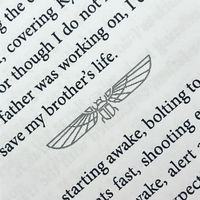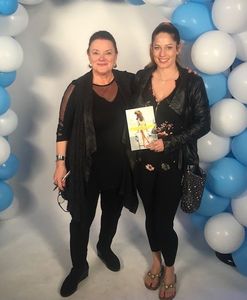5 Tips on the Editing Process
By Alisha Sevigny
Edits, edits everywhere, and several drops to drink...
The final edit of the interior pages of my new middle grade adventure, THE LOST SCROLL OF THE PHYSICIAN, is due this Monday.
Now is the time when I comb every line, weigh every adjective, verb, preposition; changing just one word can have a dramatic ripple effect. Despite my previous post on perfectionism, like Daenerys on last week’s GoT episode, I am giving that dragon free reign.
This past month has been full of edits for Scroll and I’ve been very lucky to work with a fantastic editor who is so good at what she does (looking at you, Jess Shulman), which has me thinking about the whole process of giving and receiving feedback. (That and someone asked me to write a post on editing.)
As both an author, freelance substantive editor, and former lit agent, I have experience in getting and giving edits. Substantive editing was my favourite part about being an agent and I think it has made me a better writer. Or at least better at receiving feedback.
Edits are supposed to make a book better, but what’s “better” can sometimes be discretionary. When receiving edits there are some you nod in agreement at, some you shrug at and other you vehemently shake your head at.
I usually make the changes I’m comfortable with first. Then I go onto the easy fixes or ones I’m shrugging at. Then, after I give myself some time to protest, to rebel, to wonder aloud at the preposterousness of the suggestion (this last one hasn't happened lately), I give it some time to simmer, to mellow. Then I'll go back and see if it’s better with the changes. If I don’t think it’s any worse than the original, then it’s probably better. If, after some time, it still sticks out then go with your writer’s intuition, which you will begin to trust more and more as you gain experience. You'll start to recognize your voice, your tone, what you want to say and how you want to say it.
When giving edits I always like to give the author a choice whenever possible. I also appreciate being given one. Something about that lets me be more open to the editor's comments and remarks, which is a great thing for a writer to be. People who are closed off or unwilling to see things from another perspective or take criticism, even in a constructive way, won’t grow as writers. One of my clients, Pat Oliver, who was very gracious about receiving her substantive edits took her novel from 140K to under 100K. Her book, THE GYNESAURS, was the only self-published book listed for The Stephen Leacock Medal for Humour Award, making it one of Canada’s top 10 funniest books in 2018. See, listen to your editor. (Read the inspiring interview with Pat here).
Good editors are ghosts. They come, they fix, they are invisible on the page, leaving a writer with their voice intact, with plenty of respect for the writer’s fragile ego. Good writers trust the person who is taking the time and effort to make your work better.
Your CanLit News
Subscribe to Open Book’s newsletter to get local book events, literary content, writing tips, and more in your inbox
My editor at KCP Loft, Kate Egan, (also, the editor of THE HUNGER GAMES, thank you very much) came back to me with a succinct page and a half of notes for SUMMER CONSTELLATIONS. The copy editor came back with some inline changes. I accepted every edit except one line that I wanted to keep, and I'm happy I kept it. At the end of the day, it’s your story and only you know how you want it told.
As with my book covers, I’ve been fortunate to work with some incredible editors. In this business, it really does take a village. A village filled with the best kinds of people, those who are passionate about and love books. Thank you Kate Egan, Jess Shulman, Colleen McKie and Mandy Schoen, not to mention the agents and interns at TRF, who have all contributed to helping make my work the best it can be.
So to recap, remember:
- Be open.
- Let it mellow.
- If it doesn’t make it worse it probably makes it better.
- Go with your gut.
- Review again in case your gut was wrong.
And now, back to editing...wish me luck!
The views expressed in the Writer-in-Residence blogs are those held by the authors and do not necessarily reflect the views of Open Book.
Alisha Sevigny is the author of YA novels, Summer Constellations, (winner of CCBC Best Books for Kids & Teens 2018), and Kissing Frogs. Her historical adventure series, Secrets of the Sands, launches January 2020 with The Lost Scroll of the Physician. She holds a degree in professional writing and sociology from the University of Victoria, is a film school graduate, former literary agent, hot yoga lover and avid traveller. Born and raised in the Pacific Northwest, she lives in Toronto with her family. You can follow her on social media @alishasevigny.




